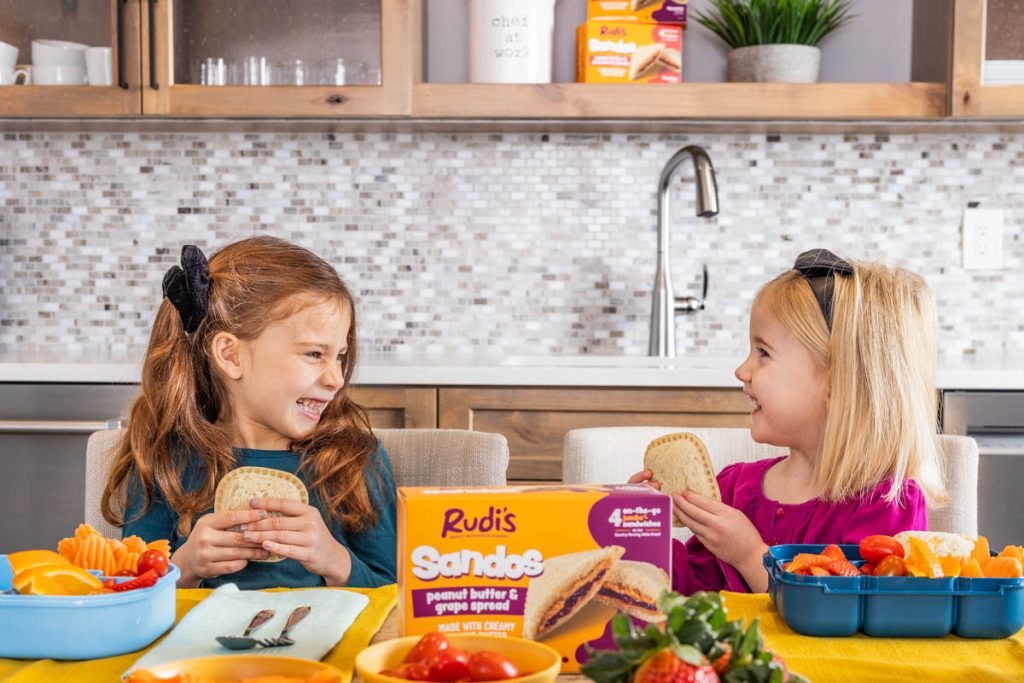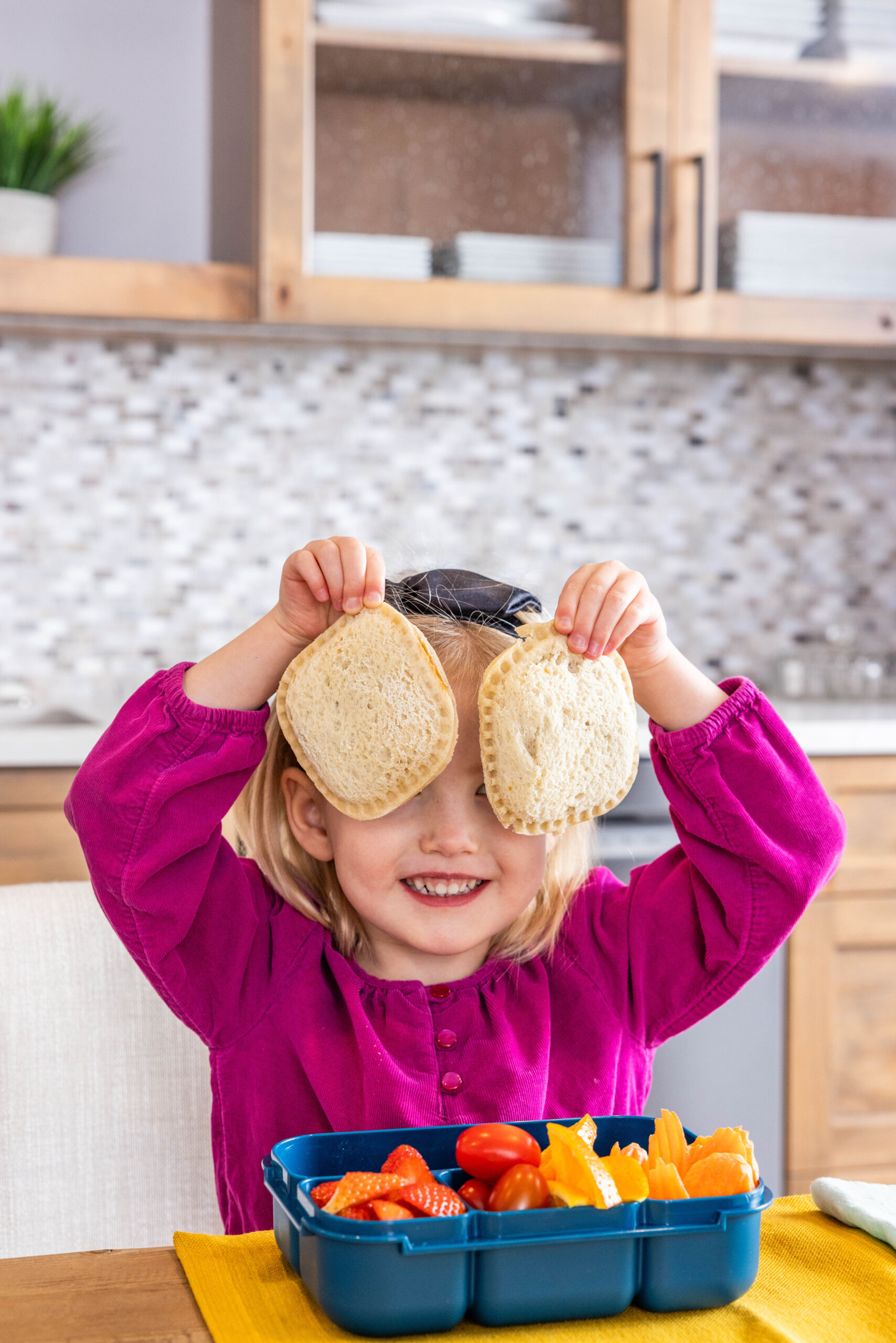Sure, you’ve heard about the health benefits of family mealtime: Positive family bonding, better eaters, and happier homes in general.
But the reality is that kids are often fidgety, distracted, and complain at the dinner table. Simultaneously, parents are exhausted from the long day. This can be either a recipe for disaster or a wonderful time to bond and reset as a family.
For a more enjoyable family mealtime experience, implement the following strategies recommended by our registered dietitian, Jessie, to enhance positive moods, comfort, and a sense of calm for all family members at the dinner table.
Dinnertime Strategies For The Whole Family
A successful and healthy family dinner begins before any meal preparation — and well before anyone even sits down at the table. Use these eating behavior techniques to make family mealtimes more engaging and positive.
- Stick To A Schedule: Dinner that’s served at a relatively consistent time each day creates a beneficial routine that allows everyone in the family to plan how the rest of their evening will go. If little kids are in the family, have food on the table before inviting everyone to sit down. This helps cut down on fidget time and takes advantage of shorter attention spans. Typically, elementary age kids can be expected to sit for a max of 20 minutes at a time, so plan accordingly.
- Find Your Foothold: Child health experts know that younger children sit longer when they have a chair with a footrest and back support. They should be seated close to the table and at the right height, so they don’t have to climb up onto their knees to see their plates.
- Set The Tone: Remove distractions like toys, phones, tablets, loud sounds, and TVs (even those that are making noise in a different room). Clear the table of anything that would distract from your meal and conversation, which will also help kids, from preschoolers to adolescents, improve their social skills outside of family life.
- Allow Customization: Though you’re in charge of what’s being served, kids can get some self esteem and the control they desire by being involved in some meal planning and food choices for your shared meals. It’s also helpful to allow young children to choose if they’d like to add an ingredient, topping, or condiment to certain parts of the meal. They should also be allowed to taste foods in any order.
- Keep Rules Consistent: When expectations change, kids get confused. So be consistent with any mealtime “rules” or table manner you’ve established and state them often. In some homes, parents choose what’s being served, but kids get to choose the amounts of each food they want on their plate. In other homes, kids are required to take at least one bite of a new food. Even if kids like the new food, don’t all of a sudden change the requirement to be two bites of a new food. Instead, set the consistent expectation, then let kids explore at their own pace.
- Lead by Example: Set a good example for picky eaters by modeling healthy eating habits and a positive tone when you eat dinner. Show enthusiasm for trying healthy foods and use many different words to describe what you’re eating, which helps kids expand their palettes and understand the positives of variety in a better diet.
- Make it Fun: It’s hard to make regular family meals every single week, especially if they don’t feel fun and enjoyable for anyone. Incorporate some activities into dinnertime, such as asking engaging questions, planning themed meals, or playing tasting games that everyone can participate in.
- Express Gratitude: Encourage everyone to express gratitude for the meal, for each other, for the ones cooking meals and cleaning up, and for your time together. This cultivates a sense of appreciation, fosters a positive atmosphere, and creates family connectedness to which every family member will want to return.

THE BOTTOM LINE
Family dinners are hard because they land at a time of day when both kids and parents are exhausted from their busy schedules. But employing some strategies for scheduling, atmosphere, and expectations can help make mealtimes more enjoyable and engaging for everyone around the table.
Written by Jessie Shafer.
Jessie is a Registered Dietitian Nutritionist living in Colorado where she splits her time among nearby playgrounds, typing away at her trusty laptop, and heating up her home kitchen with delicious experiments. A former magazine editor-in-chief, Jessie has a long career in food publishing and health writing. She is currently the editor at The Real Food Dietitians and a nutrition consultant through her business crdible.









